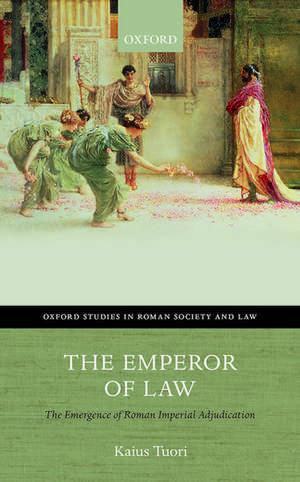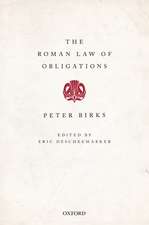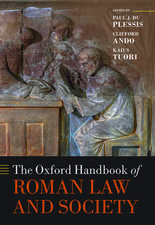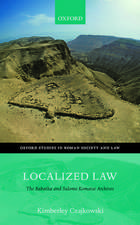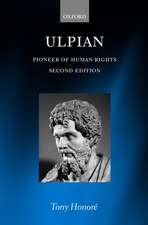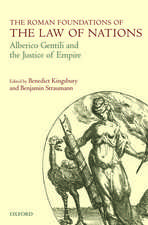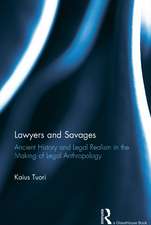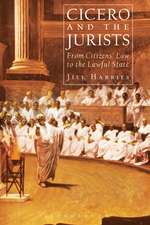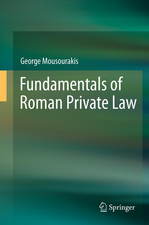The Emperor of Law: The Emergence of Roman Imperial Adjudication: Oxford Studies in Roman Society & Law
Autor Kaius Tuorien Limba Engleză Hardback – 24 noi 2016
Preț: 820.49 lei
Preț vechi: 1178.23 lei
-30% Nou
Puncte Express: 1231
Preț estimativ în valută:
157.02€ • 170.50$ • 131.90£
157.02€ • 170.50$ • 131.90£
Carte tipărită la comandă
Livrare economică 11-17 aprilie
Preluare comenzi: 021 569.72.76
Specificații
ISBN-13: 9780198744450
ISBN-10: 0198744455
Pagini: 498
Ilustrații: 6 black-and-white illustrations
Dimensiuni: 145 x 222 x 32 mm
Greutate: 0.68 kg
Editura: OUP OXFORD
Colecția OUP Oxford
Seria Oxford Studies in Roman Society & Law
Locul publicării:Oxford, United Kingdom
ISBN-10: 0198744455
Pagini: 498
Ilustrații: 6 black-and-white illustrations
Dimensiuni: 145 x 222 x 32 mm
Greutate: 0.68 kg
Editura: OUP OXFORD
Colecția OUP Oxford
Seria Oxford Studies in Roman Society & Law
Locul publicării:Oxford, United Kingdom
Recenzii
This volume is absolutely worth of reading and taking as a permanent cornerstone of the history of the Roman imperial legal praxis.
this is an impressive and important work ... There is much to praise here ... This is a work that asks more questions than it answers, but that is no bad thing. It challenges the reader, with great subtlety, to rethink the role of the emperor, to look again at what we think we know, and to recognise the artificial remembering of later Roman historiography. We accept Roman imperial adjudication because the Romans did, and if Tuori's argument holds, that is the most important thing about it.
The author has indeed produced a work of judgment and sense, one that all students of the imperial legal system will find helpful.
this is an impressive and important work ... There is much to praise here ... This is a work that asks more questions than it answers, but that is no bad thing. It challenges the reader, with great subtlety, to rethink the role of the emperor, to look again at what we think we know, and to recognise the artificial remembering of later Roman historiography. We accept Roman imperial adjudication because the Romans did, and if Tuori's argument holds, that is the most important thing about it.
The author has indeed produced a work of judgment and sense, one that all students of the imperial legal system will find helpful.
Notă biografică
Kaius Tuori is currently an Academy of Finland Research Fellow. He studied at the Universities of Helsinki, Finland, and La Sapienza in Rome, and holds a doctorate in Law and an M.A. in History. His research interests include legal history, Roman law, legal anthropology, classical archaeology, and their intellectual history, and his publications include two academic monographs and several articles in journals such as Law, Culture and the Humanities, The Journal of Legal History, the Journal of Legal Pluralism, Revue internationale des droits de l'Antiquite, and the Legal History Review. He is also a co-editor of the forthcoming Oxford Handbook of Roman Law and Society alongside Paul J. du Plessis and Clifford Ando.
